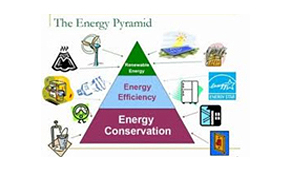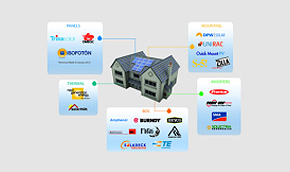When you make hammers, the saying goes, every problem looks like a nail. When nearly all the power you generate comes from nuclear reactors, you think the nuclear option is the only option.
Such is the case with nuclear giant Exelon. Rather than seizing the opportunity opened up by the U.S. Environmental Protection Agency’s Clean Power Plan to create tens of thousands of jobs by embracing renewable energy sources, like wind and solar, Exelon wants to keep hitting the same nail with the same hammer. Indeed, legislation introduced recently in Springfield is not just an Exelon-backed bill, but an Exelon-only bill.
The nuclear giant has been painting its “low-carbon portfolio standard” as a market-based solution to climate change, claiming that clean energy sources like wind, solar, hydro and even “clean coal” can compete under the policy. However, under the bill, none of those other sources could actually participate in this market.
As always, the devil is in the details. As Crain’s reporter Steve Daniels points out, the Exelon-only bill would charge ratepayers $300 million annually and places enormous technical and financial requirements on bidders that effectively prohibit wind and solar from competing.
For instance, it prohibits contracts of more than five years. Wall Street is unlikely to finance new power plants based on five-year contracts. As a result, no large wind, solar, hydro or clean coal generation would be built to satisfy this policy. Bidders also must meet de facto locational preferences, virtually ensuring that only in-state nuclear credits will qualify. Exelon owns every nuclear plant in Illinois.
Even if some of the restrictions in the law were adjusted to allow for additional participation, the short-term nature of the policy will fail to attract any new investment in Illinois. Investors, employers and energy experts agree that the only way to expand renewable energy—while building thousands of new jobs and attracting capital—is by fixing the state’s flawed Renewable Portfolio Standard and expanding current standards.
ANOTHER PATH
Meantime, other states pass Illinois by: Oklahoma has surpassed us in new wind generation by bringing on line more than 600 megawatts of wind last year, compared with zero for Illinois.
Fortunately, other legislation has been introduced that would put new renewables on the grid. The bipartisan, comprehensive Illinois Clean Jobs Bill would reduce consumers’ bills, promote a cleaner environment and create 32,000 new jobs per year once fully implemented—on top of Illinois’ current 100,000 clean energy jobs. It would fix the RPS and call for 35 percent of the state’s energy to come from renewable sources by 2030. It also embraces proven energy efficiency technologies.
Sponsored by Sen. Don Harmon, D-Oak Park, and Rep. Elaine Nekritz, D-Northbrook, plus more than 53 lawmakers from both sides of the aisle, and supported by the broad Illinois Clean Jobs Coalition, it would allow Illinois to compete for jobs and investments that other nearby states are able to attract.
Exelon can gain by embracing such proposals. A real market-based approach to limiting carbon emissions from power plants—an option allowed for under the Illinois Clean Jobs Bill, although only after a thorough review of its impact on stakeholders—would allow Exelon to capitalize on its low-carbon emissions.
As part of the clean energy industries with more than 100,000 Illinois workers, we know that rather than help one company, we should help hundreds of companies big and small across Illinois create 32,000 jobs per year while providing future generations clean air and limitless economic opportunities.
Illinois shouldn’t just hit one nail on the head. By using the right tools, like the Illinois Clean Jobs Bill, we can build a clean energy future for our state.
Read more: Exelon’s nuke bailout bill only helps Exelon—but here’s an alternative





















